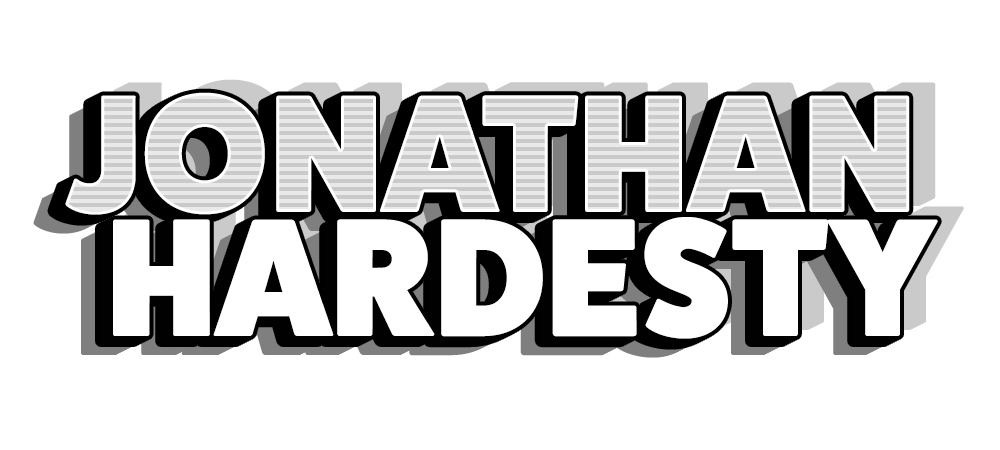Been learning a lot as I trudge along in my screenwriting career. I say “trudge” because it’s a slow climb. I’m not writing the big blockbusters, nor am I cashing those fat checks. I’m not even stacking that coin. What I am doing is writing smaller shows for colleagues and developing my voice as a screenwriter. I’m trying things out to see what works and what doesn’t work. In screenwriting terms: total n00b. One of the major things this n00b has discovered is that specificity is important. No, seriously. I mean it. IMPORTANT in all-caps, bolded, and underlined. May seem like this is a no-brainer, and it kind of is a no-brainer except for the fact that the “generic stuff” still makes its way out into the hands of readers, execs, and even two prolific screenwriting podcasters. A recent episode of theirs made me think about specificity and how to get back into the mindset of putting things on the page boldly and with purpose.
Writing
What Does NaNoWriMo Do For You?

As you may or may not know, November is National November Write Month. Simply put, people from all walks of life sit in front of their computers for thirty days and write upward of 50,000 words. Some people write memoirs and some people write sci-fi epics, while others write about their exploits in college. Recently, there was a post from Salon laying down some serious NaNoWriMo hate. I’m not sure I agreed with the logic the author employed, but they brought up two interesting points: 1) These writers don’t spend enough time reading, and 2) Events for writers are “largely unnecessary.” It’s that second point that has me the most intrigued.
When I participated last year, I wrote a cathartic piece about life after college and dealing with post-graduation depression. The whole thing was a meandering mess, wobbling back and forth between fact and fiction like a kid learning to ride bicycle. I finished my story within a day of NaNo ending, energized by the daily ritual of writing I had created and the inspiration that ritual had awakened.
And then I didn’t write anything until the following spring.
Are writing events really necessary? Do we need these month long fests to write? At best these binge-writing sessions stir the creative juices around a bit, only to have them simmer and then congeal until the following year. It’s a cycle of inspiration and determination, followed by months of shame and disappointment. How is that helpful to the writing lifestyle?
I decided to try something different this year. Instead of participating in NaNo, I would try and establish a stable writing routine for myself that I would follow on a weekly basis and that would be toward some kind of end (as in writing a blog series or trying to get a spec script ready for pitching). While it hasn’t gotten me writing every day of the week like I had hoped it would, it’s made me prioritize my writing each week and set deadlines for myself. These deadlines have yielded much stronger results than waiting for one writing event after the other.
But these are just the thoughts that have been bouncing around in my head like those awesome bouncy-balls you can get at truck stops for a quarter. What do you think? Are writing events like NaNoWriMo necessary? Do they do anything for you? What do you get from this sort of event?
On Those Stupid Outline Thingies

5.1 GB left of 8.7 GB. I’ve been sitting at my computer for a little bit now, staring at the progress bar in the hopes that it will magically move faster and faster in the ensuing moments. Since I’ve been doing this for a bit now (like I just said), it’s probably safe to assume that it’s going to take even longer to finish. So while the download is doing it’s thing and pissing me off, I figured I would jot down some thoughts in a stream of conscious manner to break the monotony of my latest string of “well-organized” posts.
In short, I want to talk about outlines.
I hate outlines. I hate writing outlines and I hate thinking about them. I come from a method of writing that involves turning on the writing program of choice and just vomiting as many words out as I can, hoping to touch upon a compelling narrative or two in the process. I like saving that organization thing for the second draft, where I have to put thought into stuff like theme or why making the side character a cat instead of a man is hilarious. No, really. It’s funny as hell.
But lately I’ve started to change how I see the writing process. Call it a writer’s puberty, if you will. Suddenly, I find that I can’t write anything unless it’s got a preset structure going in. Something that would have simply been a sit-and-write before has now become an exercise in meticulous planning. The change happened with the last script I wrote (which I have YET to revise). I decided to do things different from my usual method and write out an outline to focus my writing and get things done in a shorter period of time.
Well, it worked. In fact, it worked so great that I got it in my brain that outlining was a good thing. Now I can’t write any kind of story without drafting up a roadmap of all the things that need to happen in the story. The problem here is that I’m still the person from before who needs to jump right in and start hammering on the keyboard like there’s no tomorrow. I still need that freedom to take the story anywhere and develop the characters as I go along.
4.5 GB left.
God, I really hate outlines. I should probably finish the one I’ve started for my horror film.
On A New City, and Stuff

I suppose I should make some kind of post about life as I know it right now. Decided that I was done with Chicago and moved my ass all the way over to the west coast to live out a life of fame and fortune. That is to say, I moved to LA to try and see if this writing business will actually pan out. Whether or not this was a bad move remains to be seen. Whether or not this degree of mine was a bad move remains to be seen. Basically, I moved from one question mark to the next. But hey, that’s what adventure is, right?
All I know is that I haven’t really done a lot of writing since I got here and that’s NOT a good thing.
Feel free to ignore this post at your leisure. This is me getting back into the habit of writing.
A Most Ambitious Frenzy
Last year I failed Script Frenzy. I had a good idea, but I just didn’t have the commitment to the event that I needed to see the project through. From a writing perspective, I had gotten too mired in plot and “revise-as-you-go,” a screenwriter’s worst nightmare. I would open up my script during those 5 days I wrote and start from the beginning, tweaking everything until it felt as succinct and ready-to-sell as a final draft. By that fifth day I was burned out and done with the whole mess, so I stopped and went about my business.
Well, that’s not going to happen this year. I’ve decided to overcompensate for my failure by writing two scripts this year for Sript Frenzy. That’s right, two scripts! The idea is that I will get my first script done within the first ten to fifteen days, and then spend the last part of the month working on my second feature. I plan to budget at least ten pages a day to my script and then write some kind of rambly-ass post on here to update how things are going.
This will be a very very very interesting April.
Allons-y!
If It Ain’t Broke, Don’t Remake It

The HORROR! THEY'RE REMAKING WHAT?!
I’ve got a rather novel idea that I’d like to share with the world, something which I think everyone can agree with on some basic level. Something, which when I say it you’ll say “amen” under your breath. Ready for it?
We don’t *need* remakes.
I was looking at some stills for the upcoming movie remake The Karate Kid and suddenly this revelation hit me in all it’s clarity and wisdom. Why was this remake needed? What wasn’t told with the original story that needed to be re-told? What other kind of spin could anyone actually put on this to make it suitable for a new generation? Last I checked, the original source material still holds up and isn’t that painfully dated. And it’s not the casting that bothers me about this remake, it’s that the best option was to just re-do everything and call it a Karate Kid movie.
What if instead of remaking everything under the sun people decided to just take the basic story structures from these older movies and make something new entirely? A young, troubled boy finds an outlet for his untoward behavior in karate, thanks to a sage neighbor. Why does it have to be called The Karate Kid, and furthermore, what’s so important with it being a remake? Is it just to bring in the nostalgic moviegoers? Is it because remaking already established properties is fiscally safe?
How about this? Let the basic story stand on it’s own feet and trust that audiences that like that type of story will come in and see it. Since there’s nothing new under the sun, it’s not like you’re going to get sued for having a similar story type to the Karate Kid. If that were the case, I highly doubt a lot of “original” properties wouldn’t exist today.
Just something to think about. If it ain’t broke..
On NaNoWriMo

Dudes (and Dudettes), I totally frickin’ did it!
I wrote a 50,000 word novel. That’s about 93 pages using your standard Times New Roman font and the basic margins set up by Microsoft Word when you open a blank document. Seven more pages and I could use one-fifth of a ream of paper to print out my novel. Reading my words would take a few trips if you took the public transportation here. So, now what? What happens now that I’ve done the unthinkable (or at least have done what I thought to be unthinkable..or doable)?
I dunno.
I think I’m going to take the next month or so and let the project simmer so I can get a feel if I want to actually do more with it or if it’s going to remain merely a means of cheap therapy. There’s not really that much of a plot to speak of, since it’s based loosely on me and my life after graduation. And every few thousand words I throw in something fictional to spice things up and make it readable on some level. But for the most part there’s a lot of incoherent ramblings about the craft of writing, which perhaps works well with the crazier parts of the story as one would have to be a bit nutty to fictionalize themselves.
The process of writing out this monstrosity was kind of interesting as I forced myself to write at least 2,000 words on average every day. On days I took off, I made up for it by doubling and in some cases tripling the word count. By the fourth week, I started to feel the strain of the deadline and let myself get a little looser in what I allowed on the page. But what I didn’t expect was that all this writing would spark my creative juices in such a dramatic way. I started going back to my other projects and re-examining them, planning on what I would do when I finished my novel. On one particular day, I even planned out another novel that I want to write. I imagine that there will be a NaJaWriMo or something in my future.
This fire to continue writing hasn’t stopped since I passed the 50k word limit. In fact, I wrote two short scripts on Sunday and outlined another project. And as you can tell, tonight I decided to blog a bit.
If I could impart some advice from what I’ve learned doing this whole project it would be that you just need to write. Don’t get hung up on whether it’s good or not. Tell your story and save the validity of it for draft two. Be as raw as you can be and you’ll find that the words come quite naturally.
But fuck poetry, because that’s just stupid. :P
On Writing Despite The Void

Writer’s block is a terrible tragedy that befalls even the best of writers. How they get through this debacle varies. Some take a walk to clear their mind, some eat a bunch of junk food, some watch movies, some take drugs, and so on and so forth. I’ve written a few blog posts about this before and thought I would do so again. Truth is, I’ve been in a bit of a “void” these past few weeks, and really haven’t had that much to write about be it for the blog or for my own script. The question then is, do I “write despite the void?”
The short answer: yes.
The less-short answer: yes, but it sure is a bitch and a half.
See, when you’re in the “void,” you’re fighting an uphill battle. The ideas are all gone, and the inspiration that you may have once had decided to go on that Vegas vacation it has been talking about all these years and not leave you a contact number. You still have to write, though, which brings up the obvious question: How? Here’s some things that have helped me get something onto the page, despite having nothing up there in my noggin.
Incentives
Sounds cheesy, but I reward myself for writing. I reward myself MORE for writing in the void. Ice cream, sweets, coffee, anything that might encourage me to get a few words out. Hell, I’ve even used social engagements as a reward for writing. Oftentimes, the stuff I write under these conditions aren’t all that great, but at least it’s something.
White Noise Method
Sometimes I’ve been able to crank out a page or two of something through what I call the “White Noise Method.” It’s a really simple method involving having the television on, the itunes playing on random, and having my cats racing each other around the room. Somehow through all the chaos I can get myself to focus. If you don’t have a cat, I’m sure you can substitute with a second tv.
Internet Removal Method
This is perhaps the most effective, but the hardest to initiate. It involves halting your access to the internet while you try to write.
Writing Groups
Another method that I’m always keen on trying to get myself writing more is one in which I gather with one or more people and just write. Sometimes, being amongst others is all it takes to get the creative juices flowing. You can step away from the page briefly to chat, and then just as quickly return. You also run the good chance of gaining some insight to what you’re writing as well as some useful brainstorming for future projects.
Anyway, just a few thoughts on what you can do to write while you’re in the “void.” It might be tough as hell, but eventually you’ll find that you have a lot of stuff written that you can go back and re-write. Oh yeah…re-writing. That’s a different story altogether.
Do You Force It?
When I have writer’s block, I try to force myself to write something whether it’s any good or not. This tends to put me at odds with myself since I don’t like writing anything unless I have something to actually write. I’ve been told countless times to just get something “on the page” no matter what and that it’s not always going to be good. Do you hold to that? Do you force it when you know you don’t have it in you? Is forcing it a good idea?
I’m definitely curious what other writers think about this…
Outlines Suck, But Are Awesome
A problem I come across when screenwriting is the logistics of the plot. I have no problems placing two characters in a room and making them say cool things, but when it comes down to where things eventually end up, it becomes a different matter entirely. I’ve tried to help myself out a bit by doing the whole “outline” thing, but it always leaves me feeling like I haven’t made any progress whatsoever in my writing. Case in point, I’ve decided to take a step back and write out a step outline for a script I’m writing. I spent a few hours the other day writing what amounted to about 20 lines of outline.
How is THAT progress??
On the flip side of that, however, I now have a better idea of where I want my story to go.
Hrmm.



